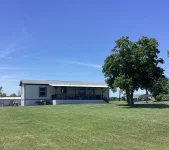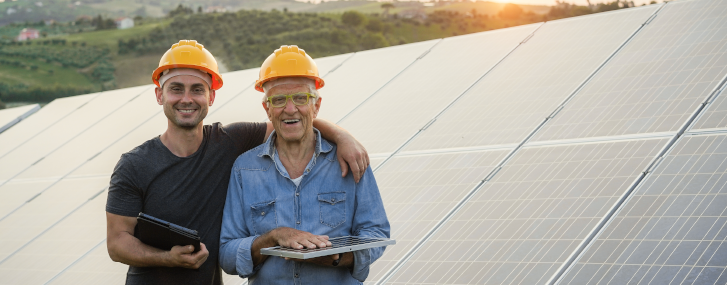- Joined
- Feb 5, 2022
- Messages
- 15,807
- Reaction score
- 18,968
Someone has to pee in the punch, so I guess today, it's <--------this guy:From the OP article:
IIARTR, he had ten years of 260k a year, and no portfolio, earning assets, or backup plan?
Someone has to pee in the punch, so I guess today, it's <--------this guy:From the OP article:
Mobile homes may be affordable in some situations, and an option where you have land available but don't want to build a home. But they have safety and maintenance issues, and are a terrible long term investment. Unlike a house on a foundation, their value is more like a boat or RV. It goes down in value over time, losing much of the value in the first few years. Which makes sense - why buy a used 10 year old one and pay to have it moved, when you can get a new one set up by the manufacturer.
At the same time, the 'city' prices in some locations are staggering and unsustainable. I think we're starting to see some major shifts as well, especially as telecommuting becomes more common in the post-covid world.
I think the only complaint was there was no notice that the gravy train has stopped which is rather shitty to do.Always had weird vibes. Where does the money come from? Are these people really winning when the website was cooked to be on par with pop up ads "spin the wheel" and micro transaction bait? Always felt like the site was pushing a lot of those submissions into the shredder back when I shot my shot. So many people probably lost so much time on there just hitting F5 and thinking that wheel actually was coded fairly, every day, hopeless.
It is rather sad to see them go, but if I had won and got 5K a week for life some years ago, or effectively a quart mil a year, I would have invested it and bought enough by now that I wouldn't be a little greedy piece of shit to complain the gravy train isn't built on magic and fantasy but brass tacks business. I would have felt lucky enough at all to get a $100 coupon at the time, let alone passive income that set me up for the least stressful years of my life. Some times, you just have to let things go.
I would have definitely paid off my home with that first and still work because idleness is depressing.Oh, didn't even read into it. Figured as such though. "Having to sell his jet ski" oh boo oh no. The consequences of not planning for contingency plans. ****, some people seem like more money would hurt them then help. He didn't even have his house paid off! Ugh, no tears at all. Glad I put the effort in to pull the money I do. Maybe a lump sum would make me more careless but never "oh no, without this magic money, I'm homeless"
Best thing for them to do is fine a shabby mobile home on a country lot. Utlities and pad should already be there. Might cost $4,000 - $6,000 or thereabouts to have someone junk the old mobile home. I use to invest in land. Mostly timberland. Historically this always was where I saw the best deals for someone wanting to move out to the country.
Some are. And certainly, if you get an older one that's been maintained, they can have a lot of hidden value. I know of at least two people that NEVER would have been able to afford a vacation home, but were able to pick up a mobile home to put on a vacation lot that kept the rain out and made for a really neat hideaway. And depending on the situation, it can be a viable option.The quality of manufactured (mobile) homes built after 2006 have significantly improved. Some are now built as well as most ‘stick built’ homes. When placed on a concrete strip footer foundation, properly anchored to the ground and with structural skirting added, they remain reasonably safe with minimal maintenance.
Their depreciation can be seen as a plus, since that helps keep property taxes lower. Buying a 10-year-old mobile home can leave plenty of money available for reconditioning and/or improving it, especially if one has the skills to do some of that on a DIY basis.
I think the only complaint was there was no notice that the gravy train has stopped which is rather shitty to do.
Some are. And certainly, if you get an older one that's been maintained, they can have a lot of hidden value. I know of at least two people that NEVER would have been able to afford a vacation home, but were able to pick up a mobile home to put on a vacation lot that kept the rain out and made for a really neat hideaway. And depending on the situation, it can be a viable option.
The challenge for many is that their home is their biggest investment, and you 'lose out' on that opportunity with a mobile home. I think that's why you don't see it more.
Mobile homes may be affordable in some situations, and an option where you have land available but don't want to build a home. But they have safety and maintenance issues, and are a terrible long term investment. Unlike a house on a foundation, their value is more like a boat or RV. It goes down in value over time, losing much of the value in the first few years. Which makes sense - why buy a used 10 year old one and pay to have it moved, when you can get a new one set up by the manufacturer.
At the same time, the 'city' prices in some locations are staggering and unsustainable. I think we're starting to see some major shifts as well, especially as telecommuting becomes more common in the post-covid world.
Someone has to pee in the punch, so I guess today, it's <--------this guy:
IIARTR, he had ten years of 260k a year, and no portfolio, earning assets, or backup plan?
Some are. And certainly, if you get an older one that's been maintained, they can have a lot of hidden value. I know of at least two people that NEVER would have been able to afford a vacation home, but were able to pick up a mobile home to put on a vacation lot that kept the rain out and made for a really neat hideaway. And depending on the situation, it can be a viable option.
The challenge for many is that their home is their biggest investment, and you 'lose out' on that opportunity with a mobile home.
I think that's why you don't see it more.
I'm a young family, with kids, a new mortgage, needing health insurance...Many do indeed live on those income levels, if they're retired or near-retired and their property is paid-off, they're on Medicare or other subsidized healthcare, and their kids are long-gone.
But that's a far cry from a young family with a new mortgage, kids, and paying for health insurance.
I'm a young family, with kids, a new mortgage, needing health insurance...
We live on like 1,500 a week. And do so very well.
5k a week is extraordinary; they could easily save 2k a week, and fund a full retirement in like two years, and the rest would be given to charity.
Oh temperatures are a big issue. All the plumbing (and usually ductwork) is underneath. While you can put a 'skirt' around them, you really can't easily protect this from continuous freezing temperatures, not to mention snow loads on the roof.There might be other reasons why you see more mobile homes down south than up north, and it's nothing to do with economics or maligning stereotypes.
It may be . . .
"Frigid Cold & Tornados"
. . . neither of which are particularly good for mobile homes.
Though I suspect modern heating & insulation in these type of structures may have improved over the years.
Where I live, residential structures are most often brick. The winters are harsh, and wind storms & hail are prevalent. Given I'm in a large metro area, brick is quieter - too. This last, can't be underappreciated in urban environments.
Oh temperatures are a big issue. All the plumbing (and usually ductwork) is underneath. While you can put a 'skirt' around them, you really can't easily protect this from continuous freezing temperatures, not to mention snow loads on the roof.

I'm a young family, with kids, a new mortgage, needing health insurance...
We live on like 1,500 a week. And do so very well.
5k a week is extraordinary; they could easily save 2k a week, and fund a full retirement in like two years, and the rest would be given to charity.
$1.5K/week is $78K/year. Saving $2K/week for 2 years is $208K (plus any interest, dividend or share price appreciation).
Oh temperatures are a big issue. All the plumbing (and usually ductwork) is underneath. While you can put a 'skirt' around them, you really can't easily protect this from continuous freezing temperatures, not to mention snow loads on the roof.
That’s not an issue where we live, but there are manufactured (mobile) homes designed for cold climates and snow loads. Ours (new in 2020) is well insulated, structurally skirted, has double glazed windows and has duct work above the ceiling.
Manufactured, Modular and Mobile Homes by Skyline
View floor plans and photos of quality manufactured, modular and mobile homes and park model RVs by Skyline Homes and find a Skyline Homes dealer near you.www.skylinehomes.com
View attachment 67590152
As crazy as the sounds, it's true - I say that too!
The average home price in the U.S. is $520K. The average 401K balance of a person in their 50's, depending upon the source, is 300-600K. Combined, there's around $1M in net worth right there.
Not everyone has prepared for retirement as well as above. But many have. If you live in a middle class suburb of a major city, chances are a substantial number of your neighbors approaching retirement age, particular two career couples, are indeed millionaires.

I believe you indeed did invest in land, as that's a great idea! Thanks. I think I'll mention this to them, next time we talk.
BTW - Investing in land sounds like a tough long-haul business, as you incur carrying costs but - usually - no income. Plus you pay the opportunity cost of losing your purchase capital.
I suppose on the plus side, taxes on undeveloped unincorporated rural land are probable next to nothing.
Some are. And certainly, if you get an older one that's been maintained, they can have a lot of hidden value. I know of at least two people that NEVER would have been able to afford a vacation home, but were able to pick up a mobile home to put on a vacation lot that kept the rain out and made for a really neat hideaway. And depending on the situation, it can be a viable option.
The challenge for many is that their home is their biggest investment, and you 'lose out' on that opportunity with a mobile home. I think that's why you don't see it more.
That's math, baby!$1.5K/week is $78K/year. Saving $2K/week for 2 years is $208K (plus any interest, dividend or share price appreciation).
